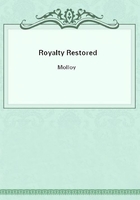
第20章 CHAPTER III.(4)
Burnet tells us that "the regicides being odious beyond all expression, the trials and executions of the first who suffered were run to by crowds, and all the people seemed pleased with the sight;" yet by degrees these cruel and ghastly spectacles became distasteful and disgusting. "I saw not their executions," says Evelyn, speaking of four of the traitors who had suffered death on the 17th of October, "but met their quarters mangled and cutt and reeking as they were brought from the gallows in baskets on the hurdle. Oh the miraculous providence of God!"Seven months later, the people were diverted by the more cheerful pageant of the king's coronation, which was conducted with great magnificence. "Two days," as Heath narrates, "were allotted to the consummation of this great and most celebrated action, the wonder, admiration and delight of all persons, both foreign and domestick." Early on the morning of the 22nd of May, the day being Monday, the king left Whitehall, by water, for the Tower, in order that he might, according to ancient custom, proceed through the city to Westminster Abbey. It was noticed that it had previously rained for a month together, but on this and the next day "it pleased God that not one drop fell on the king's triumph." At ten o'clock the roaring of cannon announced the procession had left the Tower on its way to Whitehall, where his majesty was to rest the night. The splendour of the pageant was such as had never before been witnessed. The procession was headed by the king's council at law, the masters of chancery and judges, who were followed by the lords according to their rank, so numerous in all, that those who rode first reached Fleet Street, whilst the king was yet in the Tower.
No expense was spared by those who formed part of that wonderful cavalcade, towards rendering their appearance magnificent. Heath tells us it was incredible to think "what costly cloathes were worn that day. The cloaks could hardly be seen what silk or satin they were made of, for the gold and silver laces and embroidery that was laid upon them; the like also was seen on their foot-cloathes. Besides the inestimable value and treasures of diamonds, pearls, and other jewels worn upon their backs and in their hats, not to mention the sumptuous and rich liveries of their pages and footmen, some suits of liveries amounting to fifteen hundred pounds." Nor had the city hesitated in lavishing vast sums towards decorating the streets through which the king was to pass. Four triumphal arches were erected, that were left standing for a year in memory of this joyful day. These were "composed" by John Ogilby, Esquire; and were respectively erected in Leadenhall Street, the Exchange on Cornhill, Wood Street, and Fleet Street.
The thoroughfares were newly gravelled, railed all the way on both sides, and lined with the city companies and trained bands.